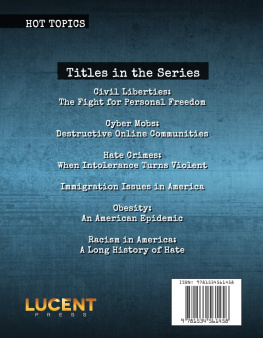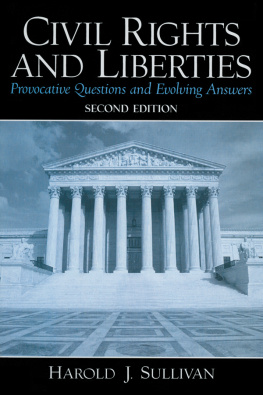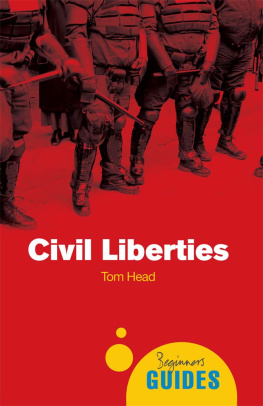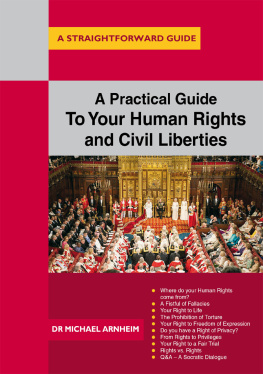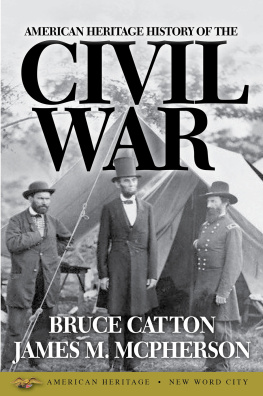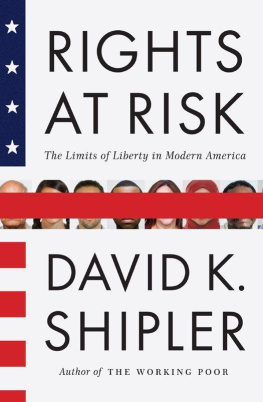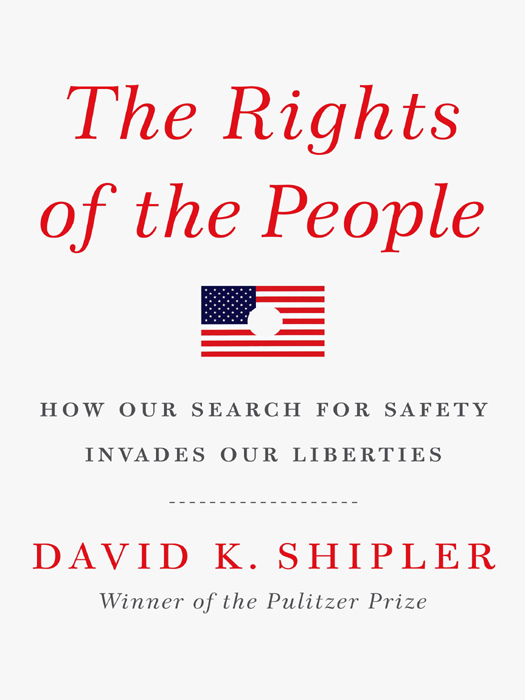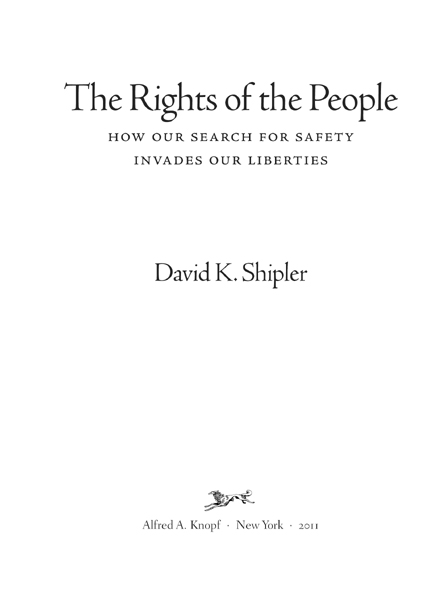ALSO BY DAVID K. SHIPLER
The Working Poor: Invisible in America
A Country of Strangers: Blacks and Whites in America
Arab and Jew: Wounded Spirits in a Promised Land
Russia: Broken Idols, Solemn Dreams
THIS IS A BORZOI BOOK
PUBLISHED BY ALFRED A. KNOPF
Copyright 2011 by David K. Shipler
All rights reserved. Published in the United States by Alfred A. Knopf, a division of Random House, Inc., New York, and in Canada by
Random House of Canada Limited, Toronto.
www.aaknopf.com
Knopf, Borzoi Books, and the colophon are
registered trademarks of Random House, Inc.
Library of Congress Cataloging-in-Publication Data
Shipler, David K., date.
The rights of the people: how our search for safety invades our liberties / David K. Shipler.1st ed.
p. cm.
A Borzoi book.
eISBN: 978-0-307-59550-8
1. Civil rightsUnited States. 2. Law enforcementUnited States.
3. Rule of lawUnited States. I. Title.
JC599.U5S495 2011
323.0973dc22 2010034255
Jacket design by Jason Booher
v3.1_r2
For Madison, Ethan, Benjamin, Kalpana, Dylan,
and those of their generation yet to come.
CONTENTS
THE BILL OF RIGHTS
FIRST AMENDMENT
Congress shall make no law respecting an establishment of religion, or prohibiting the free exercise thereof; or abridging the freedom of speech, or of the press; or the right of the people peaceably to assemble, and to petition the Government for a redress of grievances.
SECOND AMENDMENT
A well regulated Militia, being necessary to the security of a free State, the right of the people to keep and bear Arms, shall not be infringed.
THIRD AMENDMENT
No Soldier shall, in time of peace be quartered in any house, without the consent of the Owner, nor in time of war, but in a manner to be prescribed by law.
FOURTH AMENDMENT
The right of the people to be secure in their persons, houses, papers, and effects, against unreasonable searches and seizures, shall not be violated, and no Warrants shall issue, but upon probable cause, supported by Oath or affirmation, and particularly describing the place to be searched, and the persons or things to be seized.
FIFTH AMENDMENT
No person shall be held to answer for a capital, or otherwise infamous crime, unless on a presentment or indictment of a Grand Jury, except in cases arising in the land or naval forces, or in the Militia, when in actual service in time of War or public danger; nor shall any person be subject for the same offence to be twice put in jeopardy of life or limb; nor shall be compelled in any criminal case to be a witness against himself, nor be deprived of life, liberty, or property, without due process of law; nor shall private property be taken for public use, without just compensation.
SIXTH AMENDMENT
In all criminal prosecutions, the accused shall enjoy the right to a speedy and public trial, by an impartial jury of the State and district wherein the crime shall have been committed, which district shall have been previously ascertained by law, and to be informed of the nature and cause of the accusation; to be confronted with the witnesses against him; to have compulsory process for obtaining witnesses in his favor, and to have the Assistance of Counsel for his defence.
SEVENTH AMENDMENT
In suits at common law, where the value in controversy shall exceed twenty dollars, the right of trial by jury shall be preserved, and no fact tried by a jury, shall be otherwise re-examined in any Court of the United States, than according to the rules of the common law.
EIGHTH AMENDMENT
Excessive bail shall not be required, nor excessive fines imposed, nor cruel and unusual punishments inflicted.
NINTH AMENDMENT
The enumeration in the Constitution, of certain rights, shall not be construed to deny or disparage others retained by the people.
TENTH AMENDMENT
The powers not delegated to the United States by the Constitution, nor prohibited by it to the States, are reserved to the States respectively, or to the people.
PREFACE
Most of the people in this book are powerless until they find a handhold on the Bill of Rights. There, embedded in the first ten amendments to the Constitution, are the words the framers gave them to climb and counter the mighty state, to keep their speech free, their confessions true, their trials fair, their homes and files sealed from cavalier invasion by police. If the rights were solid, all of the peoples stories would be uplifting.
But parts of the Bill of Rights are erodingdramatically in the war on terrorism and less obviously, more gradually, in the war on drugs and other common crime. In courtrooms where hardly anybody goes to watch, violations of the same rights undermined by counterterrorism are evident, if less flagrant: searches without warrants, coerced confessions, punishment before judgment, the near extinction of jury trials, and legal defenses impaired by poverty and unreasonable procedure. In criminal justice as in counterterrorism, the executive branch has grabbed immense authority, distorting the process of determining guilt or innocence. All these are breaches of our founding principles.
The principles remain, compromised but not abandoned. They rescue some of the people in these pages and leave others to suffer from governments abuse. Those who are violated, whose rights lose force, tell a cautionary tale to those of us who have not been victims, yet.
I decided to do this book on the morning of September 11, 2001. Sometime around 11 a.m. I finally loosened myself from the grip of the awful images on television, stepped outside into the dappled sunshine of a brilliant day, and in a moment of extreme clarity had an extreme thought: There go our civil liberties.
It was a rash prediction, I knew, and I quickly re-formed it into a question about how firmly we would hold our liberties in such a time of testing; whether the Bill of Rights would sustain us. I figured there would be deterioration, but how much? Where would we come out at the other end? That was about as far as my thinking could progress on that dreadful day.
I had another book to finish first, which took me another two years, and by then my curiosity had broadened beyond counterterrorism onto much larger ground: What happens when rights are denied to individuals who dissent, protest, or run afoul of the law? How do the Constitution and the key elements of the Bill of Rights play on the lives of citizens and immigrants in everyday America?
That has been the framework of this exploration. When I told people I was writing about civil liberties, I was peppered with wisecracks: Oh, remember them? Better hurry, there wont be any left. Youre doing a history! At a luncheon in Washington during the administration of George W. Bush, retired generals and ambassadors at my table jumped in with a raucous round of one-liners: I guess it wont be a long book. Its getting shorter and shorter. Youll be a pamphleteer! Ha ha.
I couldnt keep it short, a sign of the complexity of our constitutional culturefor it is a culture as well as a body of law, containing not only rules and regulations but also values and mores. This makes a landscape too vast for a single volume, so Ive divided it into two books, with the second to be published a year after the first. This one focuses mainly on the element of liberty most severely affected by the spasm of fear following 9/11: the physical boundary between the individual and the state, guarded by the Fourth Amendment, which guarantees the right of the people to be secure in their persons, houses, papers, and effects, against unreasonable searches and seizures. The second book will assess the risks to rights protected by the First, Fifth, and Sixth Amendments, and the implications for accused criminals, legal immigrants, and ordinary citizens seeking to practice democracy and maintain individual liberty.



